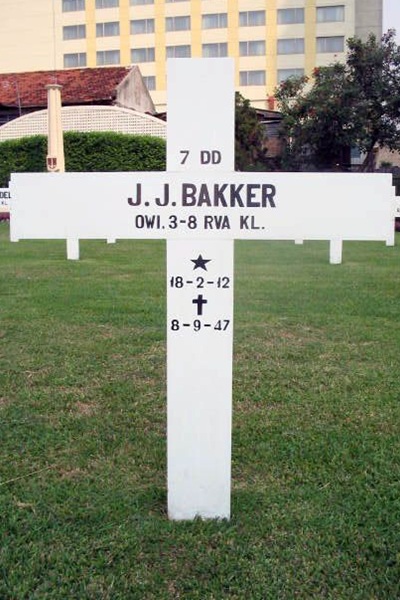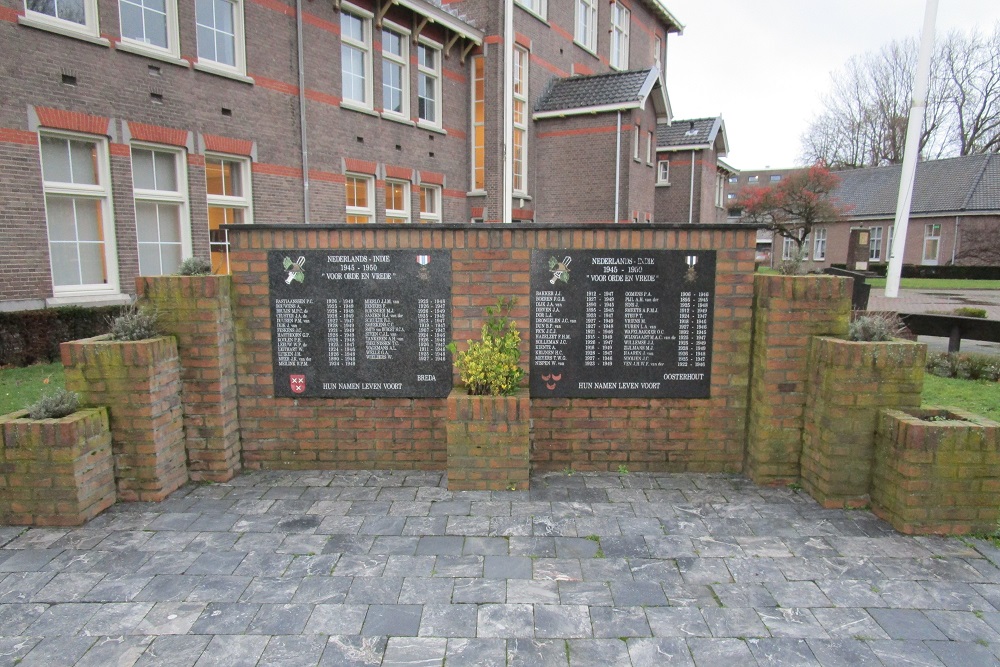Bakker, Johannes Joseph
- Date of birth:
- February 18th, 1912 (Kampen/Overijssel, Netherlands)
- Date of death:
- September 8th, 1947 (Garut/Java, Dutch Indies)
- Buried on:
- Dutch War Cemetery Menteng Pulo
Plot: III. Grave: 62. - Nationality:
- Dutch
Biography
OWI. 3-8 RVA
Johannes was born on 18 February 1912 in Kampen, Overijssel, and lived in Breda. Called up for military service, he reported to the Royal Netherlands Army in Breda in the summer of 1946, where he was assigned to the 3-8 Field Artillery Regiment. He would eventually attain the rank of sergeant major and the position of instructor.
Due to the outbreak of revolutionary violence in the Indonesian struggle for independence, he was sent to the Dutch East Indies as part of the 7 December Division to help restore peace and Dutch authority. After a short training period, he travelled to the East on the Johan de Witt in October 1946, arriving in Batavia a month later.
Upon arrival, Johannes was stationed at the artillery camp in Batavia for additional training and arming. In early January 1947, the unit moved to the port of Tandjong Priok for guard duty to prevent smuggling and theft. A month later, the unit returned to Batavia and was then stationed in the Tjiandjoer sector, in the interior of West Java.
After lengthy, fruitless attempts between the Netherlands and the Republic to implement the Linggadjati Agreement, The Hague and Batavia gave army commander S.H. Spoor permission to start the First Police Action on 21 July 1947. The aim is to bring economically vital areas on Java and Sumatra back under Dutch control in order to force the Republic to the negotiating table. For the Dutch military, after months of waiting and limited action along the demarcation lines, events suddenly accelerate. As part of the Action, Johannes and his unit entered Soemedang, after which purges were carried out in and around the town. Tactically, the Action was a success; the resistance of the revolutionaries was quickly broken and all military objectives were achieved. Diplomatically, however, the Netherlands suffered serious damage to its image and, under increasing international pressure, the Action was ended on 4 August. Another critical problem soon arises: a much larger area now needs to be secured, putting even more pressure on the already overstretched Dutch forces. As feared, infiltrations and guerrilla attacks increase rapidly in the following months.
By that time, Johannes was deployed not only as an artilleryman but also as an infantryman on patrol around Garoet, southeast of Bandung. A relatively quiet period began for Johannes when he was transferred with his unit to another sector south of Bandung in April 1948. This came to an end in July when the artillery was sent to the very restive Tasikmalaja, where various operations had to be carried out. Against the backdrop of these renewed fighting, Johannes was killed on 8 September 1947 while on patrol in Garoet. He was 35 years old and found his final resting place at the Dutch military cemetery Menteng Pulo in Jakarta.
Do you have more information about this person? Inform us!



